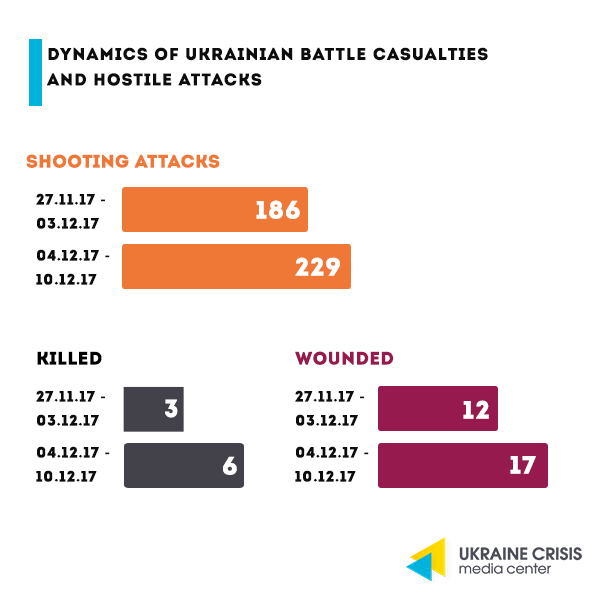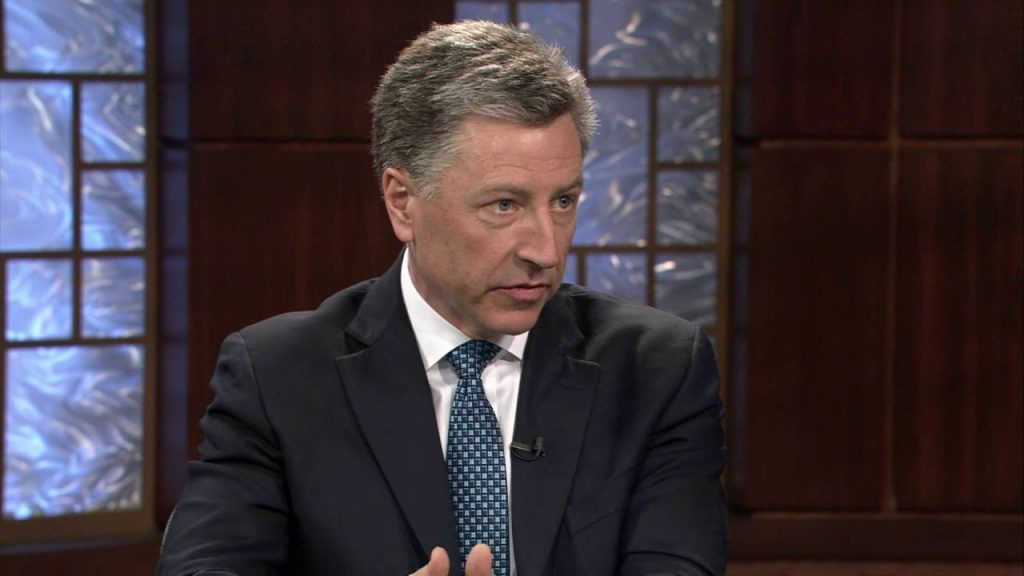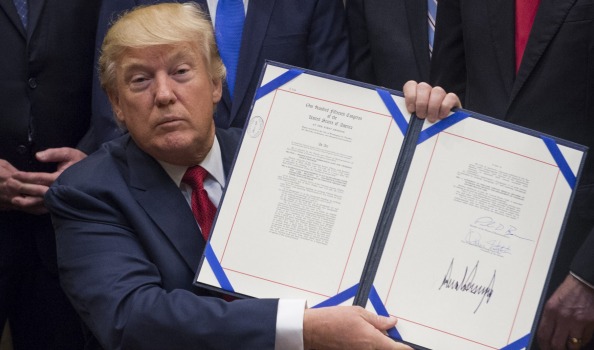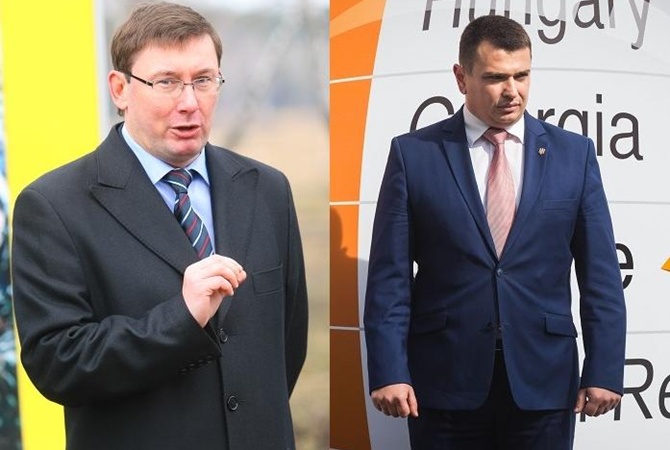Situation in the combat zone

The situation in eastern Ukraine deteriorates – Kurt Volker. The United States Special Representative for Ukraine Negotiations Kurt Volker reported on the deterioration of the humanitarian situation in Donbas. “Humanitarian crisis in eastern Ukraine is the worst in 3 years and deteriorating. Russia can end this by ending intervention and support for so-called separatists, and implementing Minsk Agreements,” the U.S. Special Representative for Ukraine Negotiations twitted on December 8.

A view from The Hague. The Office of the Prosecutor at The Hague-based International Criminal Court (ICC) in the 2017 Report on Preliminary Examination Activities cited the information pointing to “the direct military engagement between the respective armed forces of the Russian Federation and Ukraine suggesting the existence of an international armed conflict in eastern Ukraine” (Article 94).

New US sanctions against Russia (and the old ones)
New sanctions. The U.S. President Donald Trump approved new sanctions on Russia for redeploying banned missiles, reports Politico quoting a senior administration official. It is reported that the Commerce Department “will punish Russian companies that have provided technology to help develop the new weapon, which was outlawed by the Intermediate Nuclear Forces Treaty signed by the United States and then-Soviet Union in 1987”.
Sanctions for Crimea. The U.S. sanctions on Russia will remain in place until Russia leaves Crimea and withdraws its forces from Donbas, said Rex Tillerson, the US Secretary of State at the 24th OSCE Ministerial Plenary Session in Vienna.
Saakashvili arrested: what’s next?
Court decision. Pre-trial investigation in the case of the “Movement of New Forces” leader Mikheil Saakashvili started at 12 pm December 11 and is still ongoing.
The authenticity of the tapes provided by the Prosecutor General’s Office. Recordings of the presumed talk between Mikheil Saakashvili and Serhiy Kurchenko need to be passed for examination to the UK or the US, said David Sakvarelidze, a former ally of the Georgian ex-President. “You can imagine Saakashvili’s scale and who Kurchenko is – a runaway oligarch and a symbol of Yanukovych’s power. That’s what the authorities are trying to link Saakashvili to. There is a big case on Yanukovych’s criminal group, but it is so badly arranged that it will fall into pieces in courts in a while. According to the case, Saakashvili became a member of the organization’s plot that aimed at toppling the authorities in power in Ukraine. That’s the logic of the case,” Sakvarelidze said.
Saakashvili on hunger strike. The leader of the “Movement of New Forces” and ex-President of Georgia Mikheil Saakashvili announced he had gone on a hunger strike at a pretrial detention center of Ukraine’s Security Service.
The position of the Foreign Affairs Ministry: Minister Klimkin’s statement. Ukraine’s Foreign Affairs Minister Pavlo Klimkin emphasized that the West considers the arrest of the leader of the “Movement of New Forces”, former head of the Odesa regional State Administration and ex-President of Georgia Mikheil Saakashvili a Ukraine’s domestic affair. “… It is a Ukrainian affair: do your job but do it within the legal framework. It’s that simple,” Klimkin told the journalists in Kyiv last Saturday commenting on the situation around the case.
President Poroshenko’s statement. During his official visit to Vilnius President Poroshenko stated that the Saakashvili case has nothing to do with his political activities. “Overall, if we evaluate the situation with Saakashvili – it is not worthy of international attention, as there is a specific crime that has been committed. We must ensure the transparency of the investigation, the absolute openness, and impartiality of the investigating authorities. A transparent, efficient, and impartial court trial is what we need to guarantee as an independent state.” In Poroshenko’s opinion, a person charged with a crime, who illegally crosses the border and escapes after being arrested, has to be held liable. “It has nothing to do with the political activities,” the President said.
Learn more in UCMC material “To arrest Saakashvili: five good questions to ask”.
A New Attack on the National Anticorruption Bureau

The attack on Ukraine’s National Anticorruption Bureau (NABU) continues. After the draft law that could have made NABU subordinated to the Parliament was called back from the Rada under considerable pressure on the part of the international community, the main conflict line became the one between NABU and the Ministry of Justice.
A new conflict with the Ministry of Justice. Ukraine’s Ministry of Justice reports the pressure on the part of the National Anticorruption Bureau. NABU detectives searched the office and the house of a Ministry of Justice official after they received the information that there is a risk that a series of documents might get destroyed. NABU emphasizes that Kyiv’s Solomyansky district court recognized the searches that NABU conducted at the premises of the Ministry of Justice on December 8, 2017, being lawful. In its turn, the Ministry of Justice filed a claim to Ukraine’s Prosecutor General Yuriy Lutsenko reporting a crime on the part of NABU staff resulting from an illegal search and seizure of documents without a court decision.
Office of the Prosecutor General backs the Ministry of Justice. The Office of the Prosecutor General put on the unified Registry of pretrial investigations the information on a criminal offense by NABU detectives who were searching the Ministry of Justice. Ukraine’s Prosecutor General Yuriy Lutsenko emphasizes that NABU being a law enforcement agency needs to operate within the legal framework.
President’s response. The President of Ukraine Petro Poroshenko said that he will not allow for political interference into the activities of Ukraine’s anti-corruption agencies. “I will not allow any threats of political interference in the activities of anticorruption institutions,” President Poroshenko said during a joint press conference with the Lithuanian President Dalia Grybauskaitė in Kyiv on Friday.
The pressure of the international community. The European Union will disburse a new tranche of macro-financial assistance to Ukraine conditioned that the Anti-Corruption Court is set up. According to the Ukrainian media Europeiska Pravda, after Ukraine was granted a visa-free regime with the EU, there are not so many tools left to the European Union to influence Kyiv. One of the tools is actually the macro-financial assistance. After the draft law on NABU was called back from the Parliament, Poroshenko claims that he expects the Parliament to establish the anti-corruption court within a month.
Read more in UCMC’s translation of the Europeiska Pravda’s article “A step away from an abyss: the night Ukraine almost lost the visa-free travel”.
Languages in Ukraine: the Venice Commission takes Ukraine’s side
The decision of the Venice Commission. The European Commission for Democracy through Law, better known as the Venice Commission, have not supported Hungary’s accusation towards Ukraine in narrowing the rights of national minorities with the article on tuition language of Ukraine’s Law “On Education”.
Commission’s Recommendations. The Venice Commission recommends that Ukraine prolongs the transition period until 2020 before the article on tuition language in the Law “On Education” comes into force in full. According to the recommendations, “Article 7 provides a legal basis for the teaching of other subjects in the EU official languages.” “However, the new Law provides no solutions for languages which are not official languages of the EU, in particular, the Russian language, as the most widely used non-state language.”
The response of the Ukrainian Foreign Affairs Ministry. Ukraine’s Foreign Affairs Minister Pavlo Klimkin is convinced that Ukraine and Hungary will find a way to resolve the language problem. “Hungarians have to get all the opportunities that the civil service and politics have to offer. Our Hungarian partners already understand it. Undoubtedly, there are nuances for them in the domestic policy. I am convinced that we will come to terms. Education in Hungarian stays but part of the classes will be in Ukrainian,” Klimkin told journalists in Kyiv on Saturday. Ukraine’s Foreign Affairs chief emphasized that everyone in Ukraine has to know Ukrainian and understand what country they are citizens of.
The response of the Hungarian government. The Hungarian government voiced two preconditions required to resolve the problems linked to the Ukrainian Law “On Education”, reports the press-service of the Hungarian Foreign Affairs Ministry. At the OSCE Ministerial Council in Vienna Péter Szijjártó, the Minister of Foreign Affairs and Trade of Hungary, emphasized the importance of ensuring that, firstly, the rights of the Hungarian national minority are not violated and, secondly, that the Hungarians of Zakarpattia confirm their consent for the law. Szijjártó voiced respective conditions during the meeting with Ukraine’s Foreign Affairs Minister Pavlo Klimkin and later during the meeting with the United States Special Representative for Ukraine Negotiations Kurt Volker.






